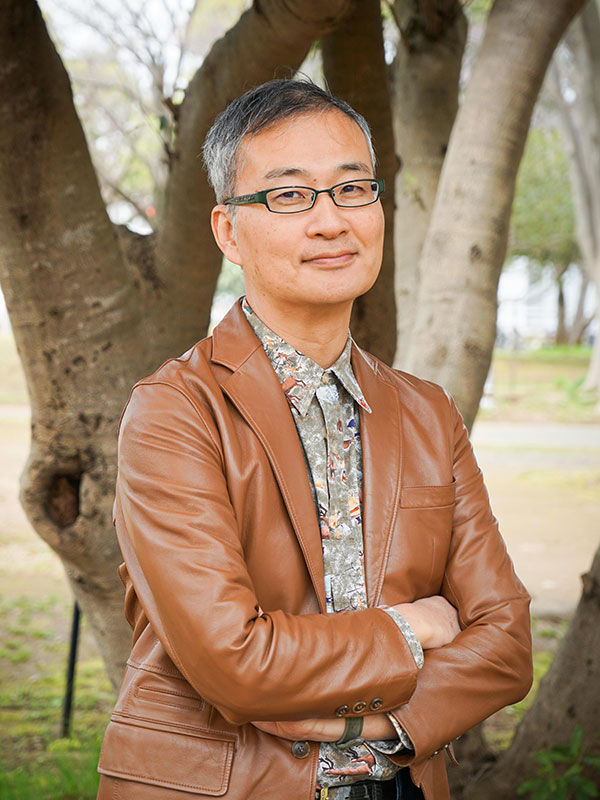
Professor,
Graduate School of Science
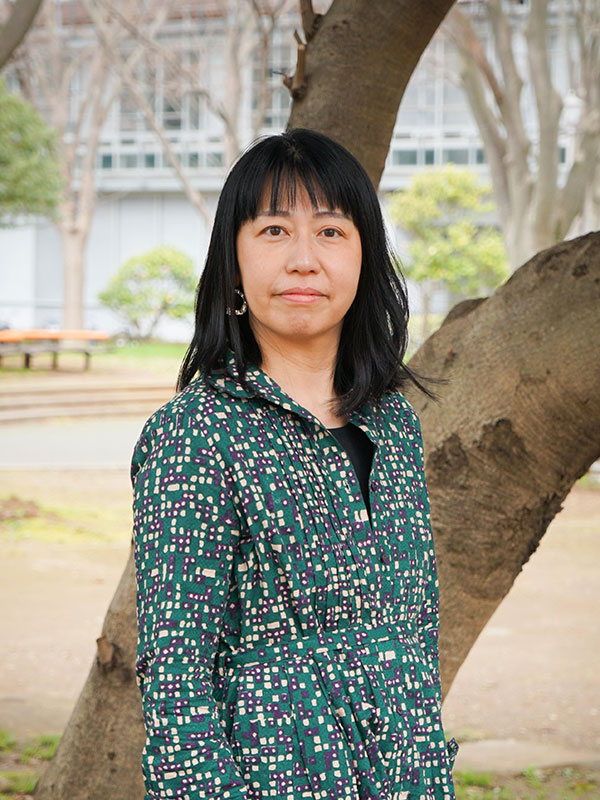
Professor,
Graduate School of Science

Associate Professor,
Graduate School of Science
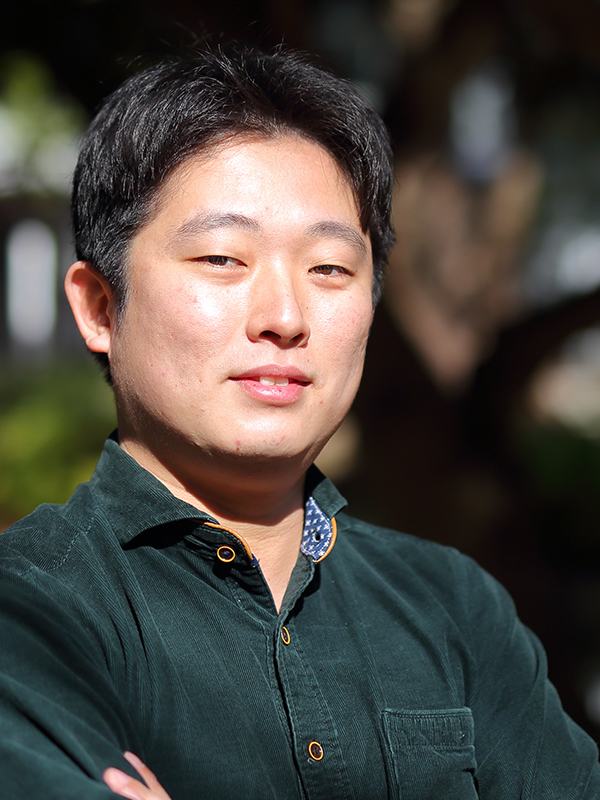
Assistant Professor,
Graduate School of Science

Assistant Professor,
Graduate School of Science
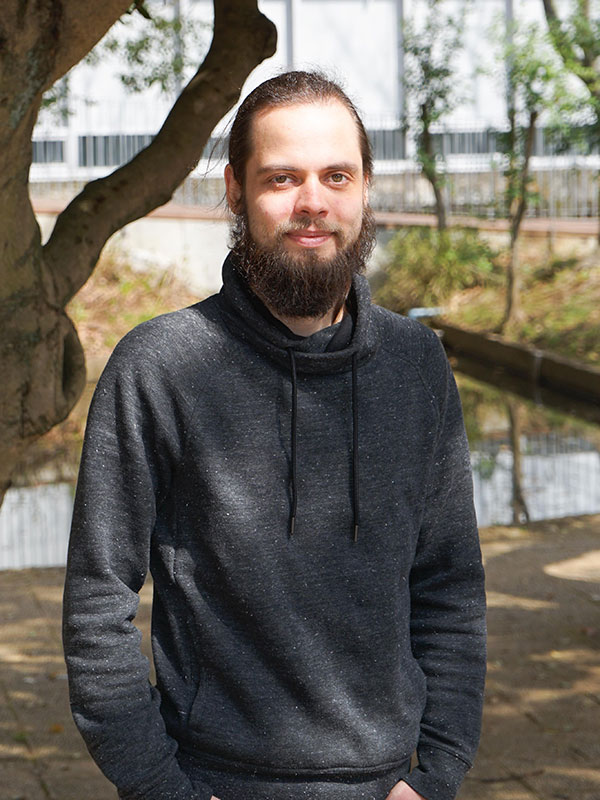
Project Assistant Professor,
Graduate School of Science

Project Researcher,
Graduate School of Science
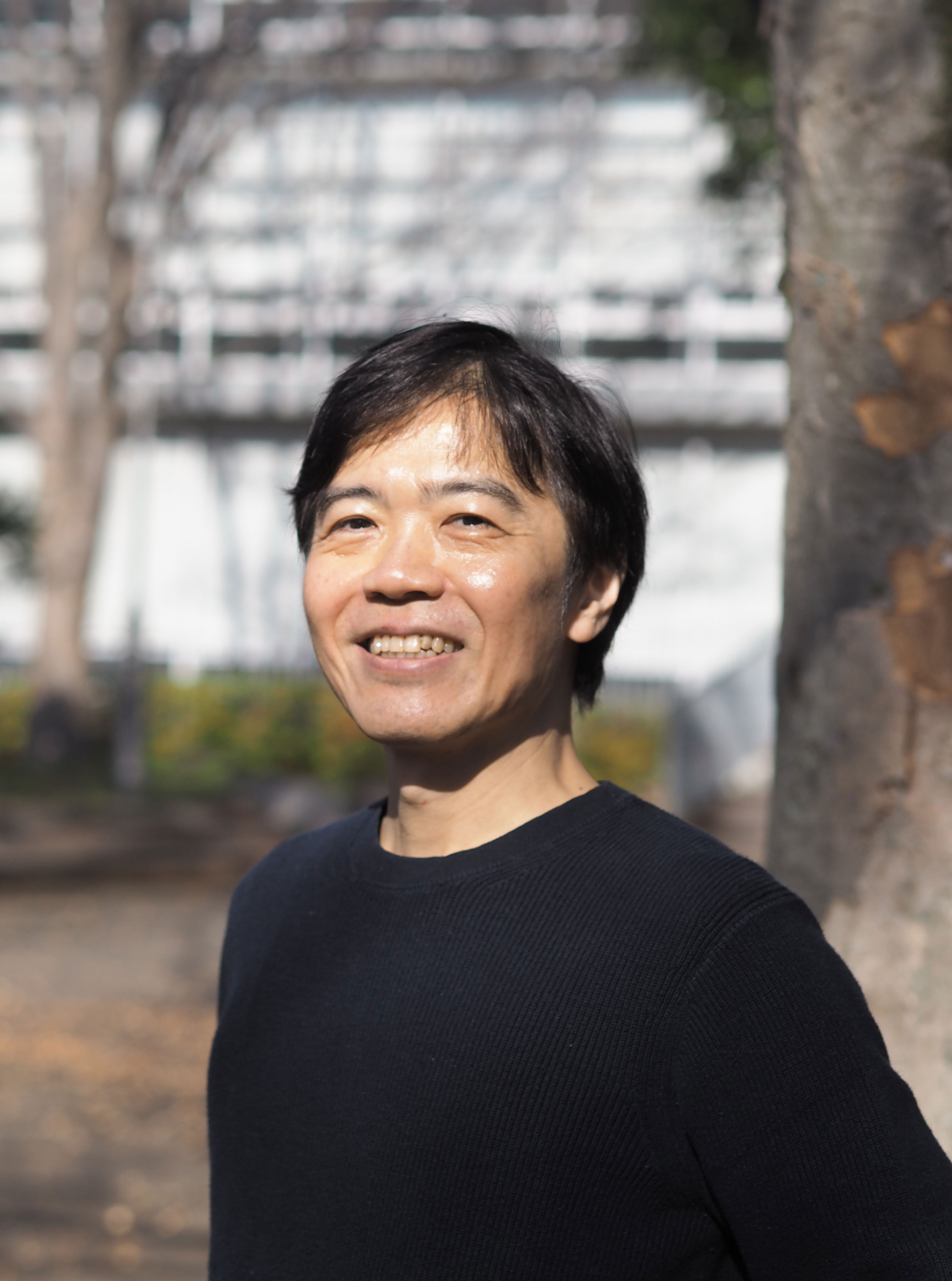
Project Researcher,
Graduate School of Science

Project Researcher,
Graduate School of Science
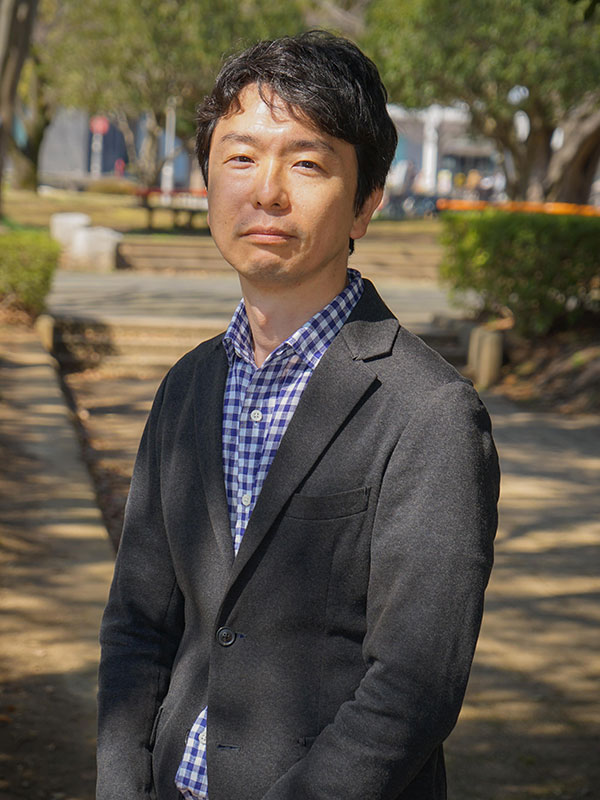
Associate Professor,
IAAR/ Graduate School of Science

Associate Professor,
CUDTEC/ Digital Transformation Enhancement Council
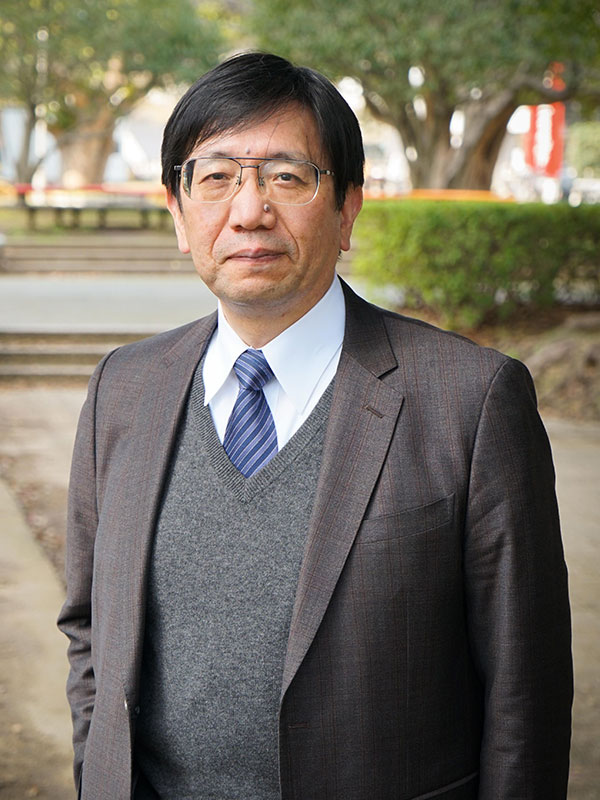
Specially Appointed Professor, CUDTEC/ Digital Transformation Enhancement Council
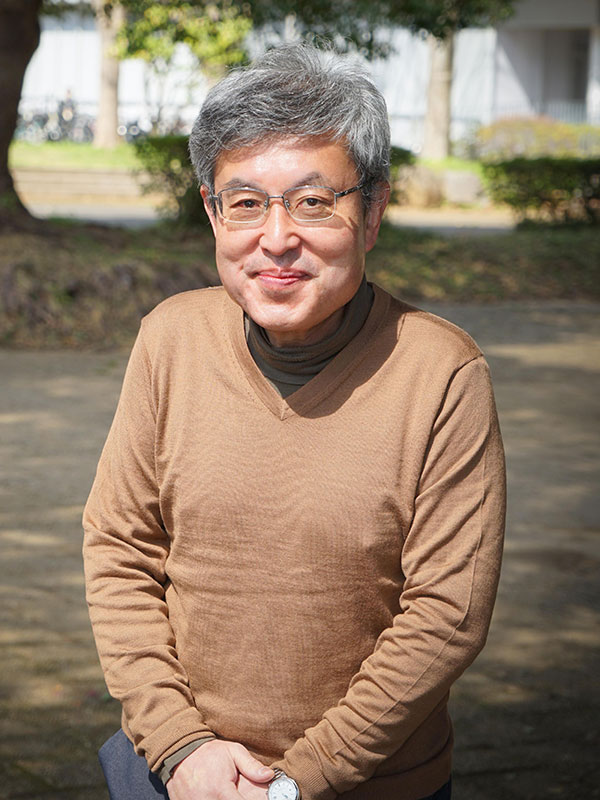
Specially Appointed Professor,
Center for Advanced Science

Department of Physics / Professor, Director of ICEHAP
Ph.D.
Neutrino Astronomy, Particle Astrophysics
Search for high-energy cosmic ray sources in space using neutrinos.
Development of related detectors.
It is a study that makes you realize the depth of the universe.
2019 The 65th Nishina Memorial Prize
2014 The 5th Yoji Totsuka Memorial Prize
What was your favorite book as a child or a book that impressed you?
What do you like about physics?
The practice of exploring and understanding the fundamental principles of nature. An attempt to answer the basic questions about nature.
What is the driving force behind your research?
The desire to know what no-one else knew, to understand what nobody else could have understood.
A message for middle and high school students
Find something that you can say, I'll bet my life on this. It doesn't matter what it is. If you think that if it doesn't work out, you can find another way, you will gain courage. It's more satisfying than regretting not to try.

Institute for Global Prominent Research and Department of Physics / Professor
Ph.D.
Neutrino Astronomy, Particle Astronomy
Search for high-energy particle emitting objects in space using neutrinos. Development of related detectors.
Using neutrinos, I study the high-energy phenomena that exist in the universe.
2019 The 65th Nishina Memorial Prize
2019 Yomiuri Techno Forum 25th Gold Medal Award
2017 The 37th Saruhashi Prize
2017 Wired Audi INNOVATION AWARD 2017
2014 The 5th Yoji Totsuka Memorial Prize
2013 IUPAP Young Scientist Awards 2013
What was your favorite book as a child or a book that impressed you?
I like adventure fantasies such as Satoru Sato's The Tale of the Colobockle, Tolkien's The Lord of the Rings, and Nahoko Uehashi's The Guardian series.
What do you like about physics?
Doing physics is like an adventure in imagination. It will take you everywhere. Moreover, it is an adventure of the real world.
What is the driving force behind your research?
Having the feeling of wanting to know more
A message for middle and high school students
Find sometime to see what kind of things interest you naturally.Your interests are the most important factor in your life.

Institute for Advanced Academic Research and Department of Physics / Associate Professor
Ph.D.
Gamma-ray Astronomy, Multimessenger Astronomy
Search for and understand celestial objects emitting energetic particles such as gamma rays and neutrinos.
I am working on a slightly special kind of astronomy that uses the Earth's atmosphere and ice as a telescope.
2021 The 18th Japan Society for the Promotion of Science Award
What was your favorite book as a child or a book that impressed you?
Basically, I was not good at sitting down, and I hated books...
My parents say I used to read Chronological Scientific Tables, and I also played with Nikoli puzzle books.
What do you like about physics?
The part that the results of the experiments are properly trusted without being overly concerned with the beauty of mathematics.
What is the driving force behind your research?
It feels like my expectation of myself and others as hoping it will be a little more like this, but my expectation has been repeatedly betrayed in a good way (and sometimes in a bad way), and it turns out the result is more interesting than I had expected. It may not be limited to the research.
A message for middle and high school students
Most of things are usually manageable, so just enjoy life for now. It is hard to find your own way to enjoy yourself later on.

Department of Physics / Assistant Professor
Ph.D.
Neutrino Astronomy, Particle Astrophysics
Search for high-energy particle emitting objects in space using neutrinos.
Development of related detectors.
I research to reveal the messages given to us by the larger scale of the universe.
What was your favorite book as a child or a book that impressed you?
I loved "Picture Books of National Flags", that introduced various national flags.
I think I was curious to see all the different characteristics in a small flag.
What do you like about physics?
I think it's a good culture where everyone can frankly share their opinions and enhance each other's knowledge on the common research subject of nature.
Also, there is nothing like the joy of thinking about a theory and being able to figure it out.
What is the driving force behind your research?
It is how I can encounter ideas, knowledge, and values that I have never experienced before.
A message for middle and high school students
I hope that you will cherish the feeling of why and achieve your own independence of thought.

Institute for Advanced Academic Research and Department of Physics / Assistant Professor
Ph.D.
X-ray Astronomy, Multi-messenger Astronomy
Physics of extreme environments in space
In the universe, there are extreme environments that can never be reproduced on Earth (e.g., a high-density star as the size of the Earth squeezed into the space of a spoonful). I study phenomena occurring
in such places that are beyond human imagination.
What was your favorite book as a child or a book that impressed you?
Sophie's World by Jostein Gaarder, which I encountered in high school, is an important book that taught me the joy of
thinking things through. Also, Kenji Miyazawa's "Ginga Tetsudo no Yoru" and "Tentai Shikosho" by Taruho Inagaki
sparked my interest in the universe.
What do you like about physics?
There are many things, but I like that I can discuss with researchers from all over the world in the language of
mathematics, and get answers that I would not have been able to get on my own.
What is the driving force behind your research?
The joy of discovery when it is like, “Am I the first person on earth to notice this?” Ninety-nine times out of a hundred,
I am wrong, but I enjoy learning new things when I verify them.
A message for middle and high school students
I think it is a good idea to try everything you are interested in until you are satisfied, no matter what form it takes.
I think the key to making it more enjoyable is to be aware of broad perspectives by discussing with various people
and not being self-centered.

Department of Physics / Project Assistant Professor
Ph.D.
Astrophysical tau neutrinos, GZK neutrinos, IceCube, Machine learning
GZK neutrinos, D-Eggs
What was your favorite book as a child or a book that impressed you?
A Song of Ice and Fire
What do you like about physics?
I’m a curious person. I want to know how things work and understand them!
What is the driving force behind your research?
Solving difficult problems can be really fulfilling! And I like to teach the things I’ve learned to other people.
A message for middle and high school students
If you’re interested in science, learning programming as early as possible will help you greatly.

Department of Physics / Project Researcher
Ph.D.
Neutrino/Particle Astronomy, Beyond the Standard Model Physics
Analysis: Studying neutrinos using the Neutron Echo technique; Hardware: Detector Development for the IceCube Upgrade
Neutrinos offer us a unique probe to discover what we are yet to know about the universe and its most mysterious properties. I am researching new methods to detect neutrinos from astrophysical origins as well as development work for the IceCube Upgrade.
What was your favorite book as a child or a book that impressed you?
The Old Kingdom series by Garth Nix - where the early 20th century meets the mythical, and the young heroine saves the hero. It was fascinating for me the way the heroine used music and art to master life and death, alongside her funny furry companion.
What do you like about physics?
Nature is full of exciting phenomena we have yet to describe, which keeps me curious. Just like a detective, I like how physics enables me to question, investigate (and occasionally discover the truth behind the fundamentals of our universe. To me, this is very fun and most fulfilling.
What is the driving force behind your research?
I think what drives me is perhaps similar across many people in research: to discover the yet-to-be-discovered, to debate ideas and collaborate with great scientists and to explain what we observe in the Universe to the best of our ability.
A message for middle and high school students
For you reading this, did you know nearly all of what makes you was once shining bright in a star or supernova? So remember to cherish and take care of yourself, never be shy to seek advice and support during challenges, and whatever your passion is, pursue your interests - and if it gets difficult, as a message of motivation - all you have to remember is to do your best. Best wishes!

Department of Physics / Project Researcher
Ph.D.
High Energy Astrophysics, Cosmology
Theoretical studies of high-energy astrophysical phenomena and their cosmological implications; observational studies with gamma rays and multi-messenger methods
I am studying high-energy astrophysical phenomena that involve cosmic rays, gamma rays, neutrinos etc., as well as their interrelation with cosmic large-scale structure such as galaxies and galaxy clusters, from both theoretical and observational perspectives.
Seitaro Nakamura Prize 2014 (in Japanese)
What was your favorite book as a child or a book that impressed you?
More than particular books, I recall often looking through a variety of pictorial books and encyclopedia.
What do you like about physics?
I find it truly remarkable that the knowledge gained on Earth by humans, small beings within the whole Universe, can be applied to understand (to a certain extent) cosmic phenomena that occur on far larger scales and more extreme conditions.
What is the driving force behind your research?
To boldly conceive, discover and unravel what no human has ever done before.
A message for middle and high school students
Take time to find something to do that you can truly enjoy. Whatever you challenge at your own will, even unsuccessful results will serve as valuable lessons for the future.

Department of Physics / Project Researcher
Ph.D.
Gamma-ray astronomy, Neutrino astronomy
High-energy astrophysics with gamma-ray and neutrino observations
We are exploring high-energy phenomena in the Universe through observations of invisible light and particles.
What was your favorite book as a child or a book that impressed you?
“Shinoda!” series by Yoko Tomiyasu and “Kosoado no Mori no Monogatari” series by Jun Okada. I was attracted to their daily life wth full of wonders.
What do you like about physics?
Physics is a means of explaining our beautiful and mysterious world, even including phenomena happening far away in the Universe.
What is the driving force behind your research?
Desire to know much more about the world we live in.
A message for middle and high school students
Puruse whatever attracts you. If possible, also try to read books. It enriches your life.

Department of Physics / Professor
Ph.D.
Astrophysics
Astrophysics, Magnetohydrodynamics, Numerical simulation
I am studying astrophysical phenomena involving magnetic fields. My research interests range from the Sun to cluster of galaxies.
In particular, I aim to elucidate the activity of accretion disks around black holes.
What was your favorite book as a child or a book that impressed you?
I used to read biographies of scientists. I also liked to read books on astronomy.
What do you like about physics?
The ability to explain various phenomena based on basic principles.
What is the driving force behind your research?
Astronomical phenomena are being discovered one after another. The joy of predicting a new phenomenon and then it is really observed..
A message for middle and high school students
I believe that the ability to learn new things peaks when you are in middle school or high school.
Don't miss this period and study as hard as you can to reach the highest level.

Center for Frontier Science / Professor
Ph.D.
Astrophysics
Star Formation, Numerical Hydrodynamics
I am interested in the birth of stars and planets, and the protoplanetary disks that form during this process. I am also interested in improving the accuracy of numerical simulations.
What was your favorite book as a child or a book that impressed you?
I used to get a magazine called Gakken Science. I remember reading an interesting book about the legend of the constellations by Hoh'ei Nojiri. When I was a schoolboy, I liked reading detective stories such as Sherlock Holmes. I don't remember reading any physics books as a child.
What do you like about physics?
I like it because there are few fundamental laws.
(I teach physics but consider myself an astronomer.)
What is the driving force behind your research?
The main thing is the fun of the problem considered. I feel joy when I find a simple law.

Institute for Global Prominent Research and Department of Physics / Project Associate Professor
Ph.D.
Space and Astrophysical Plasma Physics, Computational Physics
Space and Astrophysical Plasma Physics, Computational Physics
It is how high-energy particles are formed. Using a Supercomputer to Uncover the Fundamental Mechanism
What was your favorite book as a child or a book that impressed you?
A Brief History of Time
What do you like about physics?
Where it shows unexpected behavior.
What is the driving force behind your research?
My personality that likes new things, MONEY
A message for middle and high school students
Enjoy the moment.

Institute of Management and Information Technologies / Associate Professor
Ph.D.
Astrophysics, High-Performance Computing
Dark Matter, High Performance Computing
Astrophysics, Dark Matter, High Performance Computing
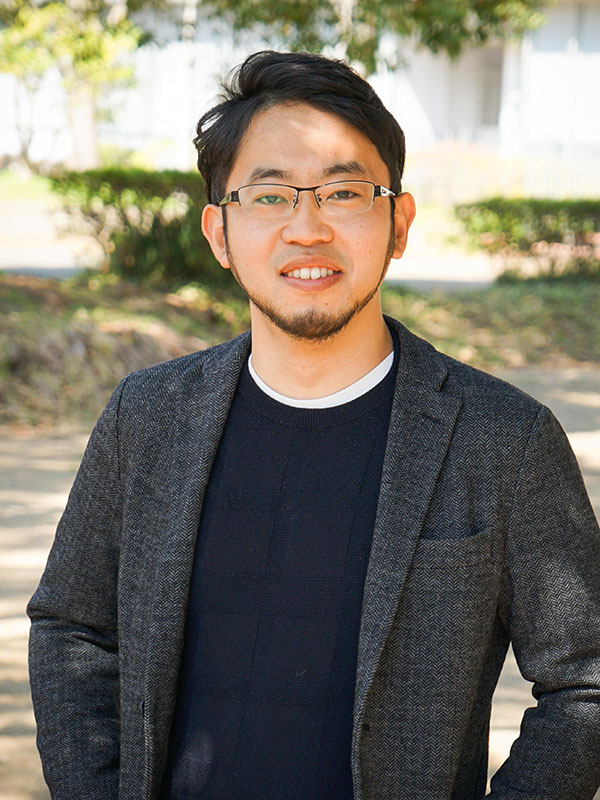
Department of Physics / Associate Professor
Ph.D.
Particle Astrophysics
The study of the solar interior and the mysteries of the 11-year cycle of solar activity.
2018 Young Researcher Award(AAPPS-DPP)
2018 GP Symposium Excellence Award (Chiba University)
2016 ACM Gordon Bell Prize Finalist Selected (International Conference for High Performance Comuputing, Networking, Strorage and Analysis)
2014 The University of Tokyo Research Encouragement Award (Doctor course)
2011 Asia Pacific Solar Physics Meeting Best Paper Award
2011 The University of Tokyo Research Encouragement Award (Master course)
What was your favorite book as a child or a book that impressed you?
Two Years' Vacation
What do you like about physics?
Since we do not have to understand what humans have determined.
What is the driving force behind your research?
The joy of discovering new things.
A message for middle and high school students
The universe is still full of mysteries. I hope you will try to solve these mysteries in the future.